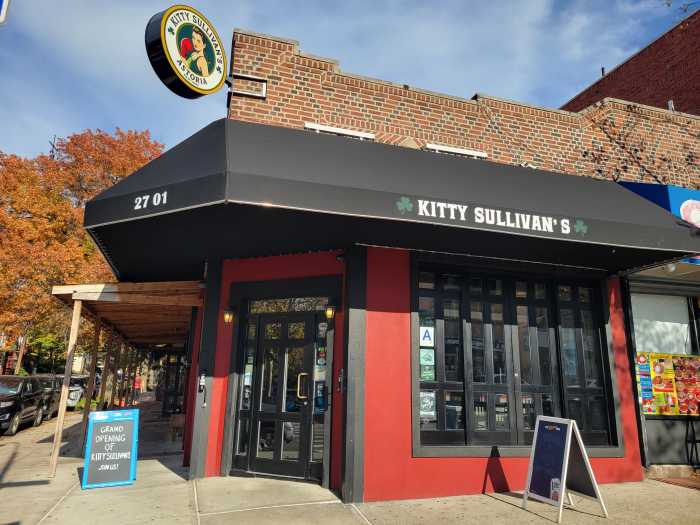A Way Aliens Can Stay Here Legally
Rep. Carolyn Maloney hosted her colleague, Rep. Luis Gutierrez of Illinois, at a Congressional Town Hall meeting at LaGuardia Community College in Long Island City on Sunday, Oct. 7, to discuss immigration issues and the Obama administration’s recently announced Deferred Action for Childhood Arrivals (DACA) initiative.

Other featured speakers at the Town Hall included representatives of the American Immigration Lawyers Association; CUNY Citizenship Now; and the New York Immigration Coalition. Immediately following the Town Hall meeting, Maloney and Gutierrez joined with Shah Amanat, president of La- Guardia Community College’s student government, and two young students who are eligible for the DACA program, to talk with members of the news media about immigration issues.
“President Obama’s Deferred Action for Childhood Arrivals policy will enable certain people who came to our country as children and meet key guidelines, similar those included in the DREAM Act, to request temporary relief from deportation proceedings and to apply for work authorization,” Maloney said in her remarks. “This is not amnesty; it’s not immunity. But it will provide an opportunity for hundreds of thousands of young people to step out of the shadows and participate fully in pursuit of the American dream. It is a terrific accomplishment that we should embrace.”
“We want to get as many DREAM Act-eligible young people signed up for this opportunity as possible because it begins the process of recognizing their place in our society,” Gutierrez added. “They grew up here, they will most likely live the rest of their lives here, and we should have a permanent way for them to be in the system and on-the-books and this is a step in that direction, if only a temporary program at this point. The process is a bit time-consuming and confusing, but with help from experts, volunteers and from sensible leaders like Rep. Carolyn Maloney, we are helping a lot of great young people sign up for this program that President Obama so wisely authorized.”
As noted, deferred action provides administrative relief from deportation authorizing a non-U.S. citizen to temporarily remain in the U.S. During deferred action status an individual can apply for a work permit.
Deferred action will be granted on a case-by-case basis. Even if an applicant meet the requirements, the Department of Homeland Security will still have to decide whether to grant deferred action.
A grant of deferred action is temporary and does not provide a path to lawful permanent resident status or U.S. citizenship.
To qualify for deferred action, an immigrant must:
– have arrived in the U.S. before their 16th birthday;
– have continuously lived in the U.S. since June 15, 2007 to the present, must have been in the U.S. on June 15, 2012 and at the time of making a request for deferred action,
– not have lawful immigration status as of June 15, 2012 (entered without proper papers before that date, or if their lawful immigration status expired as of that date);
– be at least 15 years of age and never involved in deportation proceedings or if immigration proceedings were terminated (anyone younger than 15 must be currently in deportation proceeds or have a deportation order and are not in immigration detention);
– be 30 years old or younger as of June 15, 2012;
– currently attend school, graduated high school, have a general education development (GED) certificate, or be an honorably discharged military;
– have not been convicted of a felony offense, a significant misdemeanor offense or three or more misdemeanor offenses;
– pose no threat to national security or public safety including gang membership, participation in criminal activities, or participation in activities that threaten the U.S.; and
– pass a background check.
Fees for deferred action total to $465. The employment authorization fee is $380 and the fingerprints fee is $85. Fee exceptions will be available in very limited cases.
Deferred action will last for two years. When the two-year period expires, the grant of deferred action can be renewed based on a review the individual case.
For more information on deferred action, visit www.uscis.gov/childhoodarrivals or www.weownthedream.org.



































